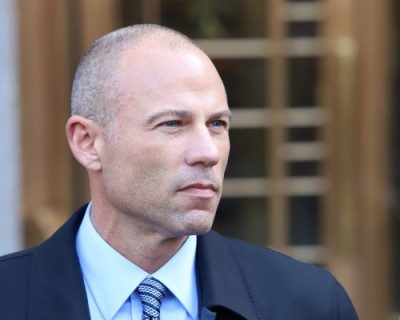Cohen seeks to ban Stormy Daniels' lawyer from court appearance; were bank records illegally leaked?

Michael Avenatti, the lawyer for Stormy Daniels./JStone (Shutterstock.com.)
The lawyer for Stormy Daniels, Michael Avenatti, should not be given permission to appear pro hac vice in court proceedings involving Michael Cohen because of Avenatti’s public release of banking records, Cohen’s lawyers argued in a letter submitted to a Manhattan federal judge on Wednesday.
The letter says the banking records may not be in Avenatti’s possession legally, and they contained inaccurate information, report Politico, the Washington Post and the New York Law Journal. In addition, the letter said, Avenatti “deliberately distorted information from the records which appear to be in his possession for the purpose of creating a toxic mix of misinformation.”
Several businesses hired Cohen as a consultant and paid money to Essential Consultants, the company that paid $130,000 in hush money to Daniels, an adult film star, the records revealed. One company that made a $500,000 payment was Columbus Nova, the U.S. affiliate of an investment firm with ties to a sanctioned Russian oligarch. Other companies that made payments had business before the Trump administration. Cohen is President Donald Trump’s personal lawyer.
Avenatti is seeking to appear before U.S. District Judge Kimba Wood and to intervene in litigation over documents seized from Cohen in FBI raids of his home, office and hotel room. Avenatti has said some of the seized documents could be subject to Daniels’ attorney-client privilege and settlement-communications privilege, according to this prior story by the New York Law Journal.
Some of the inaccurate material in the records released by Avenatti related to different people named Michael Cohen, while other information appeared to be from Cohen’s actual banking records, according to the letter, filed by lawyers from McDermott Will & Emery.
The alleged inaccurate transactions concerned payments by companies not mentioned in news reports about the records.
According to the news reports, the listed transactions included $400,000 from pharmaceutical company Novartis (the company later revealed it paid Cohen $1.2 million); $200,000 from AT&T; and $150,000 from Korea Aerospace Industries.
“If Mr. Avenatti wishes to be admitted pro hac vice before this court, he should be required to explain to this court how he came to possess and release this information,” the letter argued.
The U.S. Treasury Department, meanwhile, has opened an investigation into whether the records were illegally leaked to Avenatti, report USA Today and the Washington Post.
Rich Delmar, the general counsel for the Treasury Department’s Office of Inspector General, said the probe will look for potential violations of the Bank Secrecy Act’s privacy provisions. The law allows the Treasury Department to collect information on suspicious bank transfers.



